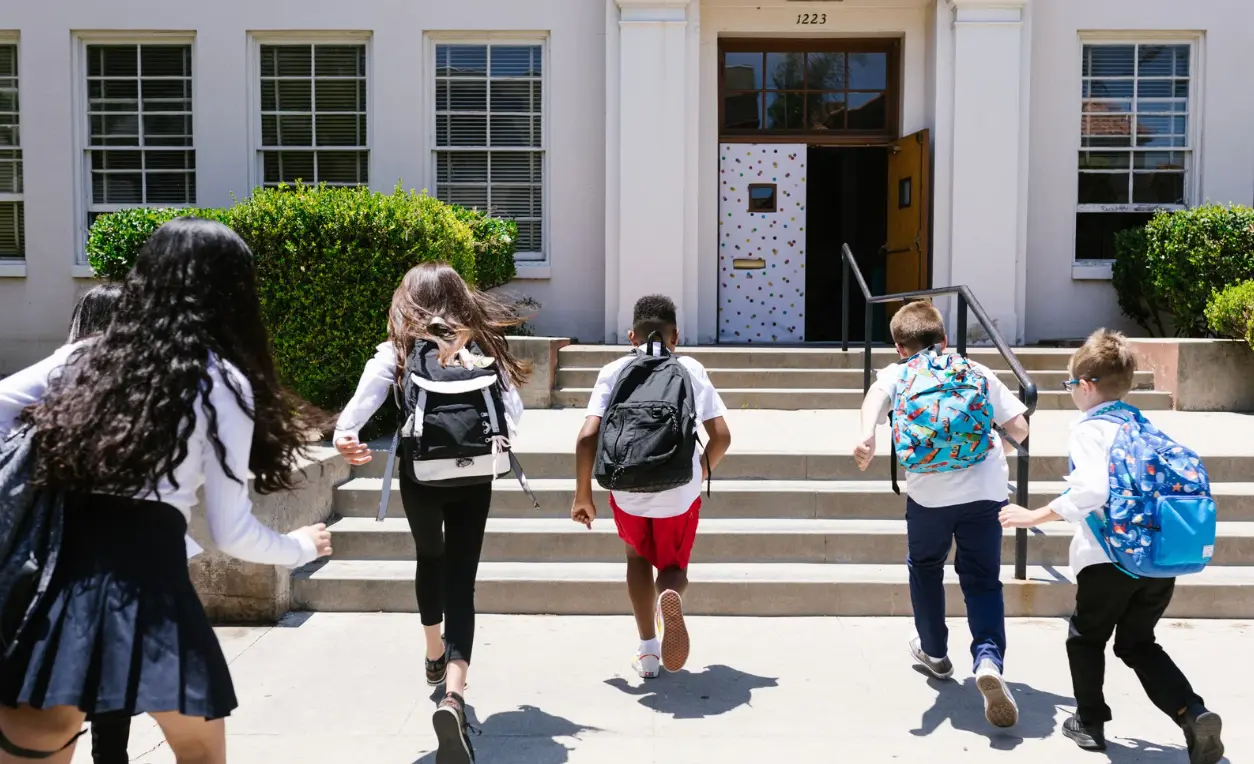Tutoring can be a game-changer for high school students. It offers personalized learning experiences that can boost academic performance and build confidence.
By providing one-on-one attention, tutoring helps students understand complex subjects and improve their grades. It's not just about catching up; it's about getting ahead and mastering the material.
With tutoring, high school students also learn valuable study skills and time management techniques that last a lifetime.
Through customized learning plans, tutors can target specific areas where a student might need extra help, ensuring that no gaps in knowledge are left unfilled. This personalized approach not only improves understanding but also fosters a more positive attitude towards learning.
The benefits of tutoring extend beyond academics. Students who engage in tutoring often experience increased motivation and self-esteem. The skills and confidence gained through this support can have a lasting impact on academic and career success. Investing in tutoring can set students on a path to long-term achievement.
Key Takeaways
- Tutoring boosts academic performance.
- It fosters long-term study skills and confidence.
- Students gain motivation and self-esteem through tutoring.
Understanding the Role of Tutoring in Education

Tutoring plays a vital role in supporting high school students. Various formats, from peer tutoring to professional tutoring, and the choice between online and in-person sessions, impact how effective tutoring can be.
Tutoring Programs and Their Formats
Educational institutions often offer various tutoring programs. These can be part of official school programs or supported by organizations like the U.S. Department of Education.
Many schools implement high-impact tutoring, which delivers significant learning benefits.
Programs can differ in structure. One-on-one tutoring allows personalized attention, while small group sessions foster collaboration.
Structured formats can include set curriculums, whereas flexible formats might focus on specific student needs. Recognizing these styles helps you choose what's best.
Peer vs. Professional Tutoring Dynamics
Both peer and professional tutoring have distinct advantages. In peer tutoring, students help each other, which can build rapport and make learning relatable. This method often increases engagement as students relate to one another's experiences. However, peer tutors may lack formal training.
Professional tutoring involves trained educators who understand pedagogical strategies. They bring specialized skills and knowledge, which can be particularly beneficial for subjects requiring expert input. Balancing these dynamics can optimize tutoring outcomes.
Online vs. In-Person Tutoring Modalities
Deciding between online and in-person tutoring largely depends on accessibility and learning preferences.
Online tutoring provides flexibility, allowing students to learn in any location with internet access. Various digital tools also enhance interaction and engagement.
In-person tutoring, on the other hand, can offer a tactile learning experience. Direct teacher-student contact might better support students who benefit from a more hands-on approach. Consider each modality's strengths when selecting the best format for the tutoring relationship.
The Efficacy of Customized Learning Approaches
Customized learning in tutoring tailors instruction to fit each student's unique needs. This approach boosts understanding and retention by focusing on personalized attention and using small groups to enhance learning dynamics.
Personalized Attention in One-on-One Tutoring
One-on-one tutoring provides you with direct, personalized attention. This type of learning is highly effective because the tutor can focus on your specific strengths and weaknesses.
You receive immediate feedback, which helps correct misunderstandings right away. This form of tutoring adapts to your learning style, making complex topics easier to grasp.
When you engage in one-on-one sessions, you're able to progress at your own pace. This means less pressure and a more comfortable learning environment. Tutors can also introduce material that directly relates to your interests, further engaging you in the subject matter.
Advantages of Small Group Tutoring
Small group tutoring combines the benefits of individual attention with the dynamics of group interaction. While learning in a group, you can share ideas which enhances critical thinking and problem-solving skills. You benefit from different perspectives within the group, leading to a deeper understanding of the subject.
The small group setting also fosters collaboration, allowing you to develop communication and teamwork skills. Tutors can still provide targeted assistance but within a more diverse learning environment. This way, you can learn from others' questions and strategies, reinforcing your own knowledge while interacting with peers.
Academic Benefits of Tutoring High School Students
Tutoring for high school students offers several advantages, including improvements in study skills and time management. It can also lead to better grades and subject performance, such as in math and other academic areas.
Enhancing Study Skills and Time Management
Effective study methods and managing your time well play crucial roles in academic success. Tutoring helps you develop these skills by showing you how to organize information, highlight key points, and use memory aids.
You can also learn strategies for effective note-taking and active reading, making it easier to retain information.
A tutor can teach you how to plan study schedules, allowing you to allocate time wisely to different subjects. When you focus on time management, you are more likely to complete assignments promptly, reducing last-minute stress.
Improving these skills not only boosts your academic confidence but also prepares you for future challenges. You become better equipped to handle your workload, leading to an overall more productive academic experience.
Improving Grades and Subject-Specific Performance
One of the significant benefits of tutoring is the potential for improved grades. Tutors focus on specific problem areas, helping you better understand challenging subjects.
If math scores are a concern, targeted tutoring can enhance your problem-solving skills and comprehension of complex topics.
Regular sessions can result in gaining a stronger grasp of subjects, which translates to better test scores. With personalized attention, you can address gaps in knowledge, leading to an overall academic performance boost.
Tutoring also helps in building confidence, which encourages you to participate more actively in class discussions and assignments. By improving your academic skills, tutoring can make school more enjoyable and fulfilling.
Psychosocial Advantages of Tutoring
Tutoring has several psychosocial benefits for high school students. These include improved self-confidence and self-esteem, as well as fostering a growth mindset and encouraging curiosity. These advantages are crucial for personal development and academic success.
Building Confidence and Self-Esteem
Tutoring provides a supportive environment where you can ask questions freely without fear of judgment. This helps in building confidence as you become more comfortable in your abilities. With time, your self-esteem improves because you see progress in understanding subjects that were once challenging.
A tutor acts as a mentor, offering encouragement. This helps in recognizing your strengths and areas for improvement. Consistent positive feedback fosters a sense of achievement. Successful learning experiences make you more likely to take on new challenges.
Cultivating a Growth Mindset and Curiosity
Tutoring plays a role in cultivating a growth mindset. When you experience success after working through difficult problems, you realize that effort can lead to improvement.
Tutors encourage a curiosity for learning by presenting subjects in engaging ways. This curiosity leads to deeper engagement with topics. Techniques like problem-solving and real-world applications show you how to explore beyond just passing exams.
Access to Tutoring Services
Access to tutoring services can vary widely based on when and how they are offered. During and after school tutoring, as well as adaptations made in response to the COVID-19 pandemic, have shaped availability for high school students.
Availability During and After School Hours
Tutoring services are often more effective when offered during school hours instead of after school. This is because they have roughly twice the impact, allowing students to focus better and make the most out of their learning time.
In-school tutoring can be a stronger and more cost-effective solution compared to after school programs, which frequently struggle with attendance.
Additionally, coordinating tutoring sessions during school can help more students access the help they need without the challenges of arranging transportation or conflicting with other commitments.
If after school options are available, tutors often provide flexible scheduling to accommodate busy student lives, which can make it easier for students to engage consistently with tutoring.
Response to the COVID-19 Pandemic
The COVID-19 pandemic introduced new challenges and opportunities for accessing tutoring services. Many regions introduced new tutoring programs to address educational gaps that appeared during this time.
In Ontario, for example, a large province-wide tutoring program was launched to help students catch up and continue their learning.
The shift to virtual learning environments during the pandemic also opened up new opportunities for students to access online tutoring. This meant that students could receive support irrespective of geographical barriers, significantly widening access to tutoring.
Some programs, introduced in response to the pandemic, provided free tutoring options as a way to ensure that education equity was maintained, preventing further widening of the achievement gap among students.
Impact on Future Academic and Career Success
High-quality tutoring offers numerous benefits for high school students, influencing both their academic paths and potential careers. It plays a key role in improving student performance and opening doors for future opportunities.
Acceleration of Student Learning and Performance
Tutoring can significantly accelerate student learning and enhance performance during high school. When students receive personalized support through tutoring, they can better grasp complex subjects and improve their academic achievement. This tailored approach means that students often see quicker progress compared to traditional classroom settings.
Additionally, participating in summer learning programs with a tutoring component can prevent learning loss and prepare students for the academic challenges of the upcoming school year. By maintaining engagement through summer, students can keep their skills sharp and be ready to tackle new material with confidence.
Networking Opportunities and Academic Achievement
Tutoring doesn’t just focus on academic enhancement; it also provides valuable networking opportunities. Engaging with tutors, who are often experts in their fields, can help students develop important connections.
These relationships may lead to recommendations, internships, or insights into their desired career paths.
Moreover, working closely with tutors encourages a greater understanding of academic subjects, which can boost achievement and make students stand out in college applications.
As students achieve higher academic standards, they position themselves well for scholarships and admissions into competitive programs. This strategic advantage in networking and academics can set them on a successful path toward their future career goals.
Considerations for Implementing Tutoring Programs
Implementing effective tutoring programs requires attention to design, delivery, and evaluation. Key points include the importance of high-dosage tutoring and the need for systematic reviews to assess the program's success and make necessary adjustments.
Designing High-Dosage Tutoring Programs
High-dosage tutoring can make a significant difference in student achievement, especially in math and reading. It involves consistent, frequent sessions, often several times a week, allowing students to build skills over time. This approach can boost student confidence and improve grades.
To design a high-dosage program, consider the session length, group size, and tutor qualifications.
Ideally, sessions should be around 30-60 minutes and involve one-on-one or small groups to provide personalized attention.
Recruiting trained and qualified tutors is essential to maximize the benefits of these programs.
Using a tiered model, where high school students, college students, and recent graduates participate as tutors, can be an effective strategy for expanding the program's reach while maintaining a feasible cost for schools.
Systematic Review of Tutoring Programs
Systematic reviews help evaluate whether tutoring programs meet their goals. To conduct a review, gather data on student progress and program satisfaction.
Analyzing this data will highlight areas for improvement and celebrate successes.
Include metrics such as grades, test scores, and student confidence in assessments. Surveys and feedback from students, tutors, and teachers can provide insight into the program's impact.
Look for patterns in the data that indicate success or areas needing adjustment.
By using evidence-based practices from research, you can continually refine and improve the effectiveness of the tutoring program.







































































